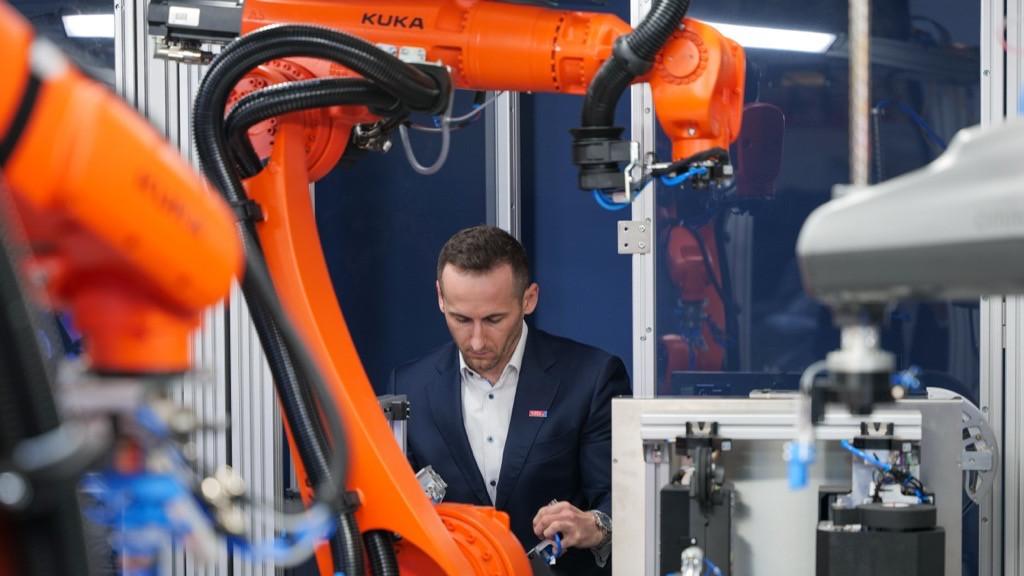tesa, international manufacturer of innovative adhesive tapes and self-adhesive product solutions, and Cellios, an innovative start-up and specialist for intelligent automation in cable assembly, presented a fully automated manufacturing cell for wire harness production at productronica (18-21 November Messe München). The live demonstration of this unique solution showed end-to-end automation of previously manual steps – from the provision of individual components to the tested wire harness – including digital data capture and traceability. tesa’s adhesive solutions are an integral part of the automated process chain.
Automation as a lever for quality, cost and speed
The new solution addresses key challenges of electrification and increasing variant diversity in the automotive industry. Standardised, robot-guided process steps ensure consistent quality, reduce scrap and enable high plant availability. At the same time, cycle times can be shortened, and production capacities flexibly adapted to different wire harnesses and OEM specifications.
For automated wire harness manufacturing, tesa contributes adhesive tapes and several applicator systems – including for branch, linear and spot taping. In combination, they enable precise, repeatable application of adhesive tapes and die-cut parts on an industrial scale.
The result:
- Reproducible process reliability through clearly defined and verifiable procedures
- More efficient line performance that significantly reduces resources and operating costs
- Faster availability through near-site production and minimised transport routes
- Measurable climate impact through reduced Product Carbon Footprint (PCF)
“Around 90 percent of wire harness manufacturing is still manual today, with a significant portion of assembly time spent on taping steps. Automation fundamentally transforms this process: consistent quality, less scrap, lower costs and the ability to produce closer to OEM sites – for shorter routes and faster delivery times. Together with our partner Cellios, we are putting this vision into practice and demonstrating how true innovation for the industry can emerge when adhesive tape technology and automation expertise work hand in hand,” says Timo Amhoff, Head of Electrical Systems at tesa.
Designed for practice – open for integration
The manufacturing cell is based on a modular system architecture with clear control logic and interfaces for robotics, sensors and software integration. It is designed for variant capability and supports fully data-driven traceability – an important step toward networked, digitally controlled production environments. Insights from the Next2OEM project, funded by the Federal Ministry for Economic Affairs and Climate Action (BMWK), were incorporated into the development.
“I am proud when I see what we have achieved together with our partners like tesa over the last two years – from the last productronica appearance until today,” says Arik Lämmle, CEO & Co-Founder of Cellios. “Through genuine collaboration and a shared goal of bringing value creation back to this country, we are showing that we can truly make a difference and create lasting change in our industry.”

